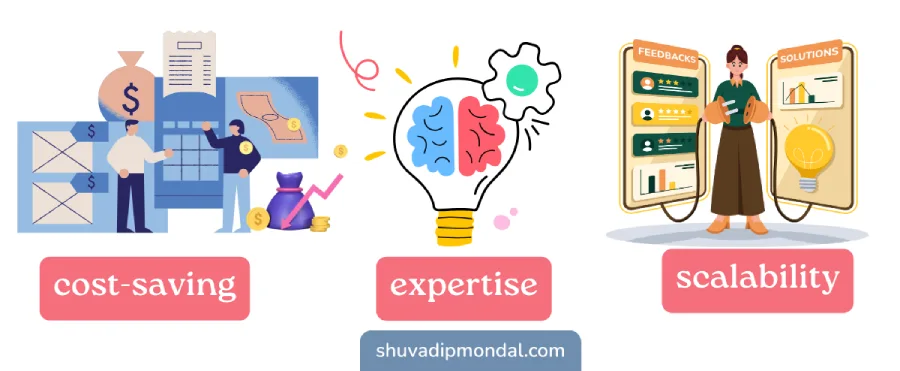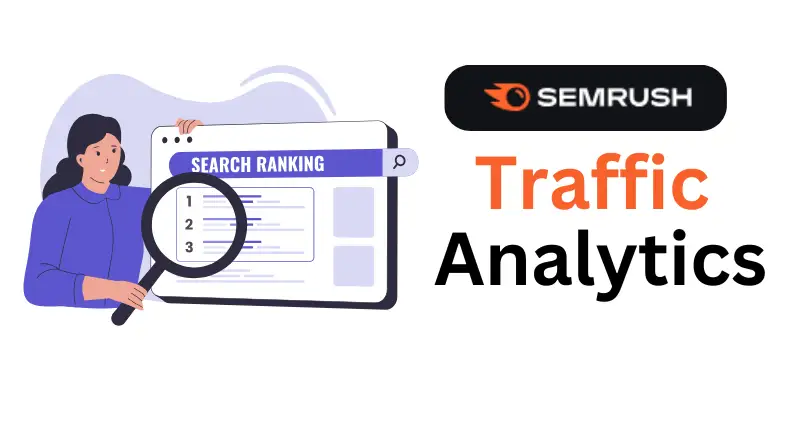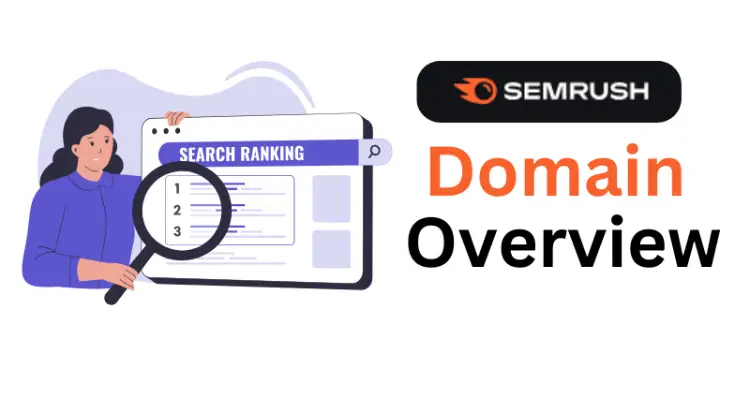If you’re looking for ways to grow your digital marketing business, you’ve probably come across the term “White Label SEO.”
Whether you run a small marketing agency, freelance, or just want to better understand how to deliver more SEO services without doing it all yourself, white-label SEO can be a game-changer.
In this guide, we’ll break down everything you need to know about white-label SEO in simple terms, from what it is to how it works, and why it’s important.

1. What is SEO?
Before we dive into white-label SEO, let’s first understand what SEO is. SEO (Search Engine Optimization) is a set of strategies used to improve the visibility of a website on search engines like Google. The goal is to get your website to appear higher up in the search results when people search for keywords related to your business. The higher your site ranks, the more likely people are to click on it.
Key Terms in SEO:
- Keywords: Words or phrases people use when searching online (e.g., “best coffee shop in New York”).
- On-Page SEO: Optimizing individual web pages to rank higher (e.g., using keywords, proper HTML tags).
- Off-Page SEO: Actions taken outside your website to improve rankings, like building backlinks (links from other sites pointing to your site).
- Technical SEO: Improving the technical aspects of your site, such as site speed, mobile-friendliness, and secure connections (SSL).
SEO can be time-consuming and requires specialized knowledge to stay ahead of algorithm changes and competition.
2. What is White Labeling?
White labeling is a process where one company creates a product or service and another company rebrands it as its own. The original manufacturer remains anonymous, while the company that sells the product under their name can focus on building their brand.
For example, a factory might produce a generic smartphone, but Company X buys it, puts its logo on it, and sells it under the Company X brand. The buyer doesn’t know that someone else made the phone.
In the world of marketing, white labeling is common. Digital agencies often outsource tasks like website design or paid advertising to third parties but sell these services as if they performed the work themselves.
3. What is White Label SEO?
Now that you understand both SEO and white labeling, it’s easy to see what White Label SEO is. White Label SEO is when one company provides SEO services for another company, but the services are branded as if they came directly from the second company.
Essentially, you are outsourcing the SEO work to an expert agency, but your clients think it’s you who’s handling everything.
So, if you’re running a digital marketing agency, and your client asks for SEO services, you can partner with a white-label SEO provider.
The provider does all the SEO work (like keyword research, content optimization, link building, and reporting), but your clients see your agency’s name on all reports and communications.
4. How White Label SEO Works
White-label SEO typically works in three simple steps:
- Partnership Setup: You, as a marketing agency or business owner, find a white-label SEO provider to partner with. You agree on the services, pricing, and other details.
- Client Onboarding: Your client hires you for SEO services. You relay this information to your white-label SEO provider, who will do all the work under your brand.
- Execution and Reporting: The white-label SEO provider works behind the scenes, optimizing the client’s website and improving its search rankings. Once done, they generate SEO reports, but these reports are branded with your company’s logo and name.
From the client’s perspective, it looks like your agency did all the SEO work. Meanwhile, you save time and effort by outsourcing.
5. Benefits of White Label SEO

Why would someone use white-label SEO? Let’s explore some key benefits.
1. Save Time and Resources
SEO requires a lot of time, tools, and expert knowledge. When you outsource to a white-label SEO provider, you don’t have to hire in-house SEO experts or spend time learning all the details of SEO. Your provider handles it all, leaving you with more time to focus on your clients and core services.
2. Expand Service Offerings
If you’re a web designer, social media manager, or digital marketer, you can easily expand your service offerings by adding SEO. White-label SEO lets you offer these services to your clients without having to master the technical side of SEO.
3. Faster Scaling
If your agency starts to grow, managing every client’s SEO needs can become overwhelming. With white-label SEO, you can take on more clients without worrying about finding more employees or increasing your workload.
4. Maintain Your Brand
One of the biggest benefits of white-label SEO is that everything is done under your brand. From reports to communications, the SEO provider remains invisible, so your clients have no idea someone else is doing the work.
5. Access to SEO Experts
SEO is a constantly evolving field. When you partner with a white-label SEO provider, you gain access to their team of experts who keep up with algorithm updates and industry best practices.
6. Challenges of White Label SEO
While white-label SEO has many advantages, there are also some challenges to keep in mind.
1. Quality Control
Because the white-label provider is doing the work, you must trust that they’re delivering high-quality services. If they’re cutting corners or not meeting expectations, it reflects poorly on your brand. That’s why it’s crucial to choose a reputable provider.
2. Lack of Direct Control
When you outsource SEO, you lose direct control over the work. This can be a challenge if a client needs something done urgently or if there’s an issue with the SEO performance. You’ll need to communicate well with your provider to make sure everything stays on track.
3. Cost
While outsourcing can save time and resources, white-label SEO still comes with a cost. You’ll need to find a pricing model that allows you to make a profit while keeping the service affordable for your clients.

7. How to Choose a White Label SEO Partner
Choosing the right white-label SEO provider can make or break your success. Here are some key factors to consider:
1. Reputation and Reviews
Look for a provider with a solid reputation and positive reviews. Check their case studies or client testimonials to ensure they have a track record of success.
2. Transparency
A good white-label SEO provider should be transparent about their processes and pricing. They should clearly explain what’s included in their services, how they execute the work, and how they track results.
3. Services Offered
Different SEO agencies may specialize in different areas, like local SEO, technical SEO, or content creation. Make sure your provider offers the specific services that meet your clients’ needs.
4. Communication and Reporting
You’ll need regular updates from your provider, so make sure they offer easy and open lines of communication. Their reporting should also be easy to understand and customizable with your branding.
5. Turnaround Time
Some SEO tasks take time, but you don’t want a provider that drags their feet. Ask about their typical turnaround times for tasks like audits, content creation, and technical fixes.
8. Who Can Benefit from White Label SEO?
White-label SEO isn’t just for SEO agencies. A wide variety of businesses can benefit from it:
1. Digital Marketing Agencies
Agencies that specialize in social media, PPC (pay-per-click), or web development can add SEO to their services without hiring in-house SEO experts.
2. Web Designers
If you build websites for clients, adding SEO services is a natural upsell. A white-label SEO partner can handle the SEO side while you focus on designing beautiful websites.
3. Freelancers
If you’re a freelance digital marketer, web designer, or content creator, white-label SEO can help you offer a wider range of services to your clients, increasing your earning potential.
4. Traditional Marketing Agencies
Even if your agency focuses on offline marketing, adding SEO to your service offerings can help you meet the growing demand for digital marketing.
5. IT Companies
If you offer IT services or website maintenance, SEO can be a great add-on service. White-label SEO allows you to expand into digital marketing without having to hire new employees.
9. The Process of Using White Label SEO
Now, let’s walk through the process of using white-label SEO in a real-world scenario:
Step 1: Find a White Label SEO Provider
First, you’ll need to find a reliable white-label SEO provider. Take your time to research and find a company that aligns with your goals and values.
Step 2: Onboard Your Client
Once you have a client interested in SEO services, you’ll explain the service offering as part of your own agency. You’ll collect all the necessary information about the client’s website, goals, and target audience.
Step 3: Share Information with the White Label SEO Provider
After onboarding your client, you’ll share the necessary details with your white-label SEO partner. This could include the website URL, keyword preferences, and any previous SEO efforts.
Step 4: SEO Provider Gets to Work
The white-label SEO provider will now begin working on your client’s website. This includes things like:
- Conducting an SEO audit: An in-depth analysis of the website to identify any existing SEO issues.
- Keyword research: Finding the right keywords to target based on the client’s industry and audience.
- On-page optimization: Optimizing web pages by adjusting titles, meta descriptions, and content.
- Technical SEO fixes: Improving the site’s speed, security, and mobile compatibility.
- Off-page SEO: Building high-quality backlinks to increase authority.
Step 5: Receive Reports and Share with Client
Once the work is completed, the white-label SEO provider will generate a report on the results. You’ll rebrand this report with your agency’s logo and deliver it to the client.
10. Conclusion: Why White Label SEO is Worth Considering
White-label SEO is a powerful tool for any business that wants to offer SEO services but doesn’t have the resources or expertise to handle it themselves. It allows you to provide high-quality SEO work to your clients while focusing on what you do best.
By partnering with a reputable white-label SEO provider, you can grow your service offerings, scale your business faster, and maintain your brand’s reputation—all without having to do all the heavy lifting of SEO yourself.
If you’re looking to expand your digital marketing agency or freelance offerings, white-label SEO is definitely worth considering. It’s a win-win for you and your clients!
FAQs on White Label SEO
1. What is White Label SEO?
White Label SEO is outsourcing SEO services to a third party who does the work under your brand’s name.
2. How does White Label SEO help agencies?
It allows agencies to offer SEO services without hiring in-house SEO experts, saving time and costs.
3. Who provides White Label SEO?
SEO agencies with specialized teams provide White Label SEO services to other businesses or agencies.
4. What services are included in White Label SEO?
Services include keyword research, content creation, on-page SEO, technical SEO, link building, and reporting.
5. Why is White Label SEO cost-effective?
It eliminates the need to build an in-house SEO team, invest in tools, and manage operations.
10. What’s the biggest advantage of White Label SEO?
It allows businesses to offer expert SEO services while focusing on their core strengths.






